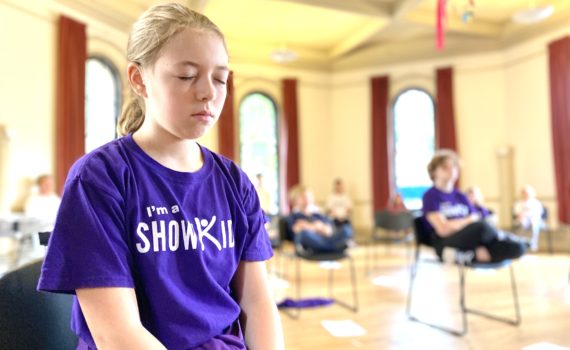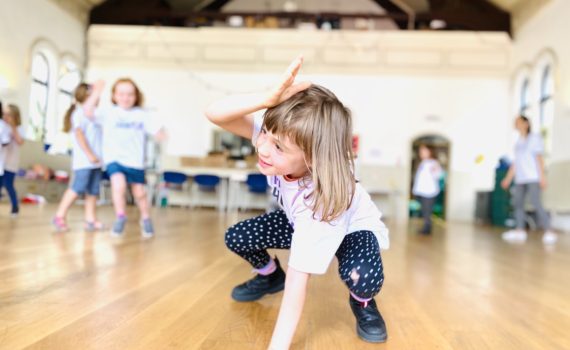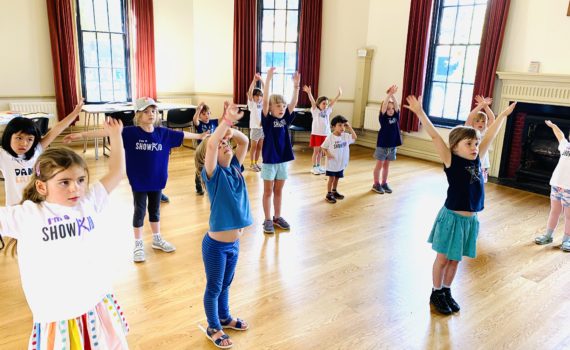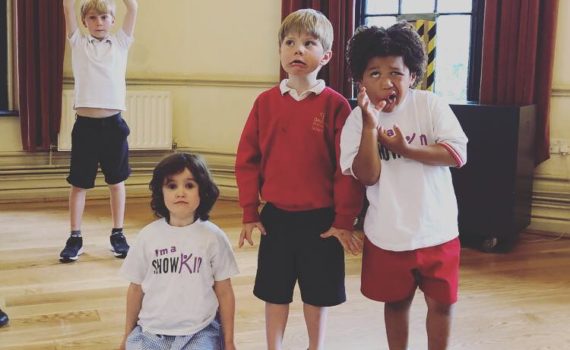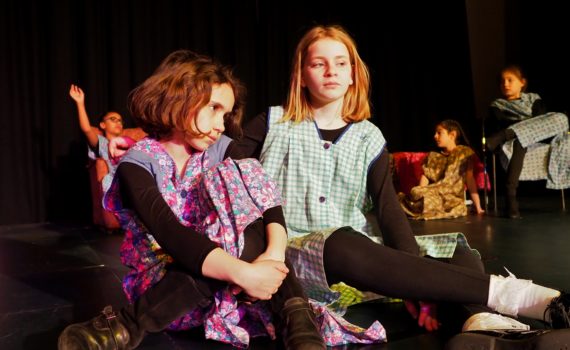
The power of drama for children
Category : Uncategorized
It’s official, children creating drama is no longer considered a bad thing! In fact, drama is recognised as an effective way to nurture key skills in children, ranging from communication to creativity. We’ve heard some people say that when they first thought of a child’s drama class, they imagined a room of extrovert wannabe starlets. Nothing could be further from the truth, although we welcome those of course!
If you haven’t considered the benefits of drama for children, here are some that we think are key:
Building confidence
It might seem like the last extra-curricular activity you’d choose for a shy child, but drama is the perfect way to overcome self-doubt and boost self-esteem. ShowKids is a safe space where every child has the chance to express themselves. Children work in friendship groups, which help them to develop social skills, and learn specific techniques like voice development and improvisation which are great for building confidence. And whether presenting solo in front of their peers, or performing as part of a group, children will feel empowered by putting on a performance.
Preparing children for the real world
Drama opens up a whole world for children, where they can explore a really diverse range of characters from different backgrounds, countries or even moments in history. It’s a powerful way of helping children get a different perspective and build an understanding of what life might look like beyond their own parameters. Acting out different roles can even give kids a taster of future careers, and learning skills like voice projection and body language will ensure they’ll be more confident about doing a presentation than most adults!
Nurturing emotional intelligence and communication
In the supportive environment of a drama workshop, children get to learn about and try out different emotions as well as explore conflict safely. By studying challenging characters and thinking about why they act the way they do, children learn to empathise. They also learn how to express themselves better and how their responses to other people or situations might be interpreted. At ShowKids, activities are all in groups and teamwork is always key to getting the best out of it – whether it’s singing, dancing or acting.
Encouraging creativity and imagination
Whether it’s through dance, singing, acting, stagecraft or devising a scene, we get children expressing their creative side. By exploring different scripts and genres, children widen their horizons, and improvisation encourages them to think on their feet and outside the box. We work on vocabulary, tone, facial expressions and accents to foster creative expression. And by encouraging kids to think about different characters’ perspectives or consider multiple plot lines, we’re helping them learn problem solving and creating future innovators.
Physical and mental development
We get children moving, but we encourage them to understand their bodies and control them, as well as grow strength and demonstrate expression. It also helps if they want to burn of excess energy or release tension. But the best thing about ShowKids is the nurturing environment we create, where children are encouraged to support and listen to each other, while they learn to understand emotions – all very important for mental health.

